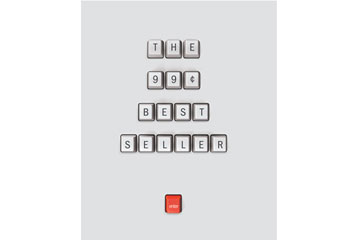
(4 of 8)
Here's how the math works. With Amazon, for books priced at $2.99, self-published writers keep 70%, or approximately $2 from every sale. That's about the same amount they would get for an e-book sold at $12 under the big publishers' typical royalty model. The cheaper a book, generally speaking, the more likely readers are to take a chance on it, meaning more sales overall.
Amazon frequently touts self-publishing in egalitarian terms. "Even well-meaning gatekeepers slow innovation," CEO Jeff Bezos wrote in his annual letter to Amazon shareholders last year, which recounted many rejection-to-riches tales. Skeptics, however, point out that the company has a stark business interest. For the past few years, Amazon has battled for control over pricing with major publishing houses, the so-called Big Six. The Big Six have argued that Amazon's preferred e-book price point--$9.99 or lower--devalues the product. Self-published books undercut the Big Six's position even further, creating a bargain-bin marketplace at little cost to Amazon. And all those little sales add up: one study estimated that the traditional houses missed out on about $100 million in revenue last year because of self-publishing.
The battle over digital pricing has sparked a Justice Department antitrust prosecution and is also likely to contribute to a wave of consolidation. Already, the two industry leaders, Random House and Penguin, have announced plans to merge, and analysts say the Big Six may soon dwindle to three, two or eventually just one major house. But even that may not be enough to shore up the publishers' position.
"A technology has come along that is changing their business model, and publishers need to learn their place," says mystery author Joe Konrath, an evangelist for self-publishing. "They were essential to the process, and now they are not."
Mysteries of Amazon
"Isn't he amazing?" Hoyt said as Konrath swaggered through the convention, wearing a black shirt adorned with shiny skulls and crossbones. Rotund and profane, he cut a Falstaffian figure, swigging from large bottles of flagrantly expensive beer and preaching a message of militant self-reliance. "I am rich!" he declared at a presentation where he was joined by a collaborator, thriller writer Blake Crouch.
"What did you make so far this year?" Konrath asked Crouch. Crouch mumbled a number. "$150,000 this year," Konrath announced, "and it's April!"
Konrath and his cohorts often trumpet such sales figures--which are plausible but impossible to confirm, given Amazon's secrecy about data. "I'm not doing it to brag," he later explains in an interview. "I'm doing it to show authors, Look, we now have a choice. We are no longer at the mercy of gatekeepers."
